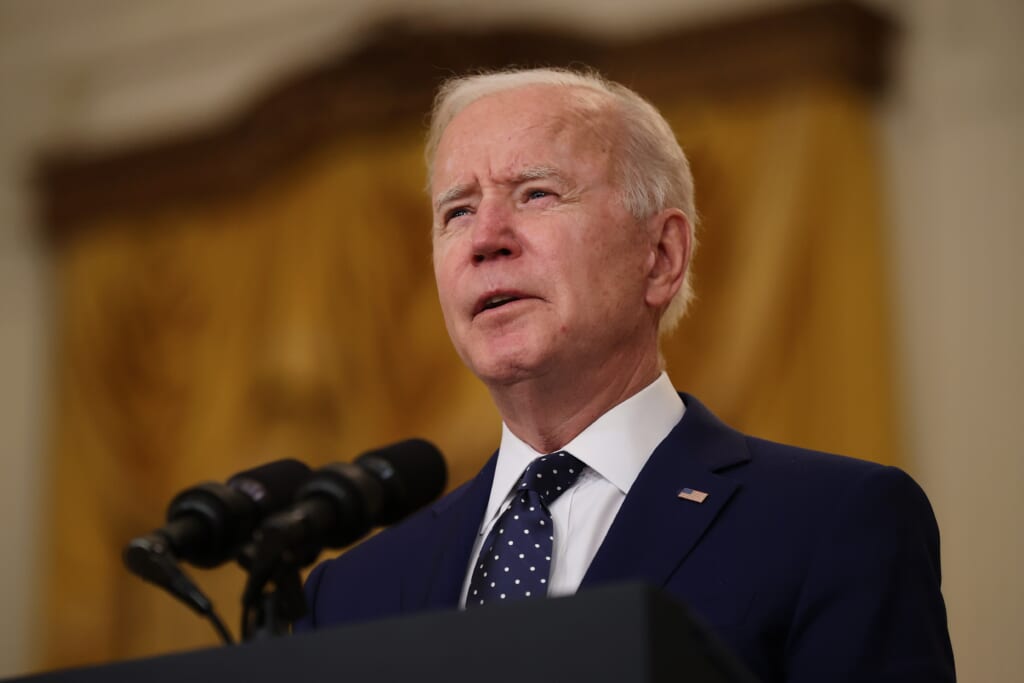Small business owners get necessary relief with Biden’s Restaurant Revitalization Fund
Exclusive: SBA Administrator Isabel Guzman tells theGrio that the RFF will help revive one of the hardest-hit segments of the economy
When President Joe Biden was officially sworn in for his duties as commander in chief this past January, the moment occurred during one of the most economically turbulent times in American history.
The Biden administration, saddled with barriers presented by the still-ongoing coronavirus pandemic, signed the American Rescue Plan (ARP) into law and has now launched a fund that will help bolster the hopes of bars, restaurants and small businesses on the path of economic recovery.

The aforementioned businesses employ around 12% of the nation’s workforce across sprawling metropolitan areas and smaller cities and towns. The businesses also provide refuge and gathering spaces that are essential to fostering a sense of connection and community that was lost over the past year.
The Restaurant Revitalization Fund (RFF) was launched with priority given under the law to “prioritize funding applications from small businesses owned and controlled by women, veterans, and socially and economically disadvantaged individuals for the first 21 days of the program.”
Read More: After Black and minority businesses missed out on PPP, Biden-Harris seek to remedy
U.S. Small Business Administrator Isabel Guzman spoke exclusively with theGrio regarding some of the finer points of the Restaurant Revitalization Fund (RFF), which was established by way of the ARP. Given that restaurants, bars and businesses that offer on-site food and beverage service are vital cogs of the economic pipeline, Administrator Guzman made certain to speak to the necessity of the fund and its hopes of reversing the fortunes of these impacted entities and community pillars.

“Restaurants and bars help to define our communities and neighborhoods, and truly are an economic engine for our Main Streets, often attracting citizens and we also know many of these businesses were the first to close [as a result of the pandemic] and usually the last to fully reopen,” Guzman began, acknowledging the closure of these establishments due to the spread of COVID-19.
“So because of that impact, they need relief and so from the American Rescue Plan, the Restaurant Revitalization Fund came and it does just that. Which is provide grants, not loans, with a total of $26.6 billion available for restaurants, food carts, catering businesses, wineries, breweries, and the full array of food and beverage businesses that are so critical to our economy,” Guzman continued.
Following a 21-day period of funding for “priority groups,” all eligible applicants can apply and will have their ventures funded on a first-come, first-served basis. Adding to this, the Biden-Harris administration has added safeguards to make sure there is equitable distribution of the fund by putting aside $9.5 billion for the smallest of the economically-impacted businesses which include millions that will go toward the establishments that earn under $50,000 in revenue.

With the RFF underway, Guzman made sure to mention that officials who helped develop the fund reached out to a variety of food and beverage business owners to assess their needs and how to aid them in the effort to adapt to the swiftly-changing times, including the application of plexiglass, mobile technology, and other ways to stay afloat while keeping others safe as possible.
“We wanted to make sure that the fund covers a wide array of expenses like rent, business debt, and all other costs. We’re focusing on businesses that have seen a decline in revenue as that’s how we determine the grant amount to give to businesses that truly need [the relief],” Guzman explained.
“And we partnered with technology firms because we know these businesses had to get creative and adopt methods and those firms such as Square, Toast, Clover, Aloha, and others will allow applicants to apply for the grant by using their established data by way of these point-of-sale vendors.”
For information regarding the Restaurant Revitalization Fund, including how to apply, please visit the Small Business Administration’s page regarding the plan here.
Have you subscribed to theGrio’s “Dear Culture” podcast? Download our newest episodes now!
TheGrio is now on Apple TV, Amazon Fire and Roku. Download theGrio.com today!
